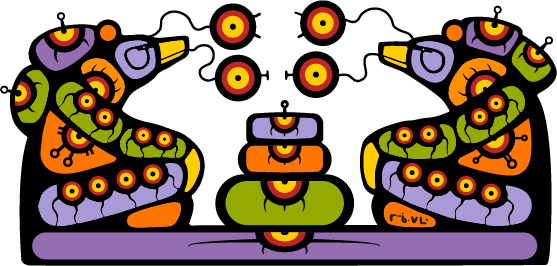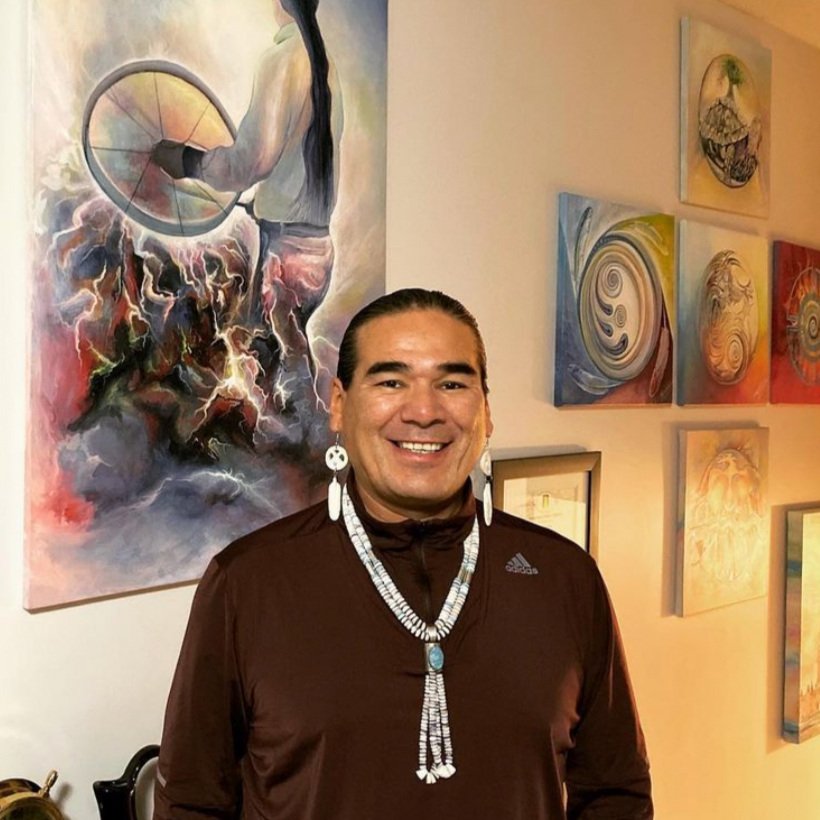Victor Tssessaze
Air Date: December 8, 2022
Summary
Podcast host Holly Toulejour speaks with her third guest in this series, Victor Tssessaze. Victor has worked in many Dene communities in ceremonies and drum making and he combines western mental health strategies with traditional teachings.
SERIES
Dene Teachings About Resilience
HOST & PRODUCER
Holly Toulejour
Campbell Stevenson
Episode Guest
Victor Tssessaze is a Denesuline man, husband and father from Northlands First Nation in Lac Brochet, Manitoba.
While born in Brochet, Victor grew up in Wollaston Lake, Saskatchewan. He spent his early years in an alcoholic family with his parents before being taken in by his grandparents who brought him up on the trapline and taught him to live off the land. It’s those land-based teachings, along with the Dene language and culture that Victor passes on to the youth he works with today.
“A lot of our people, they want to achieve their education and other goals. They want to survive and thrive in the western world but at the same time, they’ve been discriminated against. So what I always tell the young people is ‘learn your culture, re-learn it, re-vitalize it.’
Our people need to know where they came from, where they belong. You need to know that you belong somewhere,” he said.
For many years, Victor has been working with Dene communities and youth to instil the land- based teachings he inherited from his grandparents. A respected Knowledge Keeper, artist and counsellor, Victor travels across many provinces to pass on the traditional Dene ways and support land-based healing, including teaching about his language, holding ceremonies and healing circles, and teaching and singing traditional drum songs.
For Victor, his healing journey began at about 20 years old. He’s been sober for nearly 28 years. It was in his teens that Victor began to practise his traditional cultural ways, participating in sweat lodges, ceremonies and as a pipe holder. He said that those experiences were inspired by his art he made as a young child, where he used to draw and paint about native culture and ceremonies. He realized as an artist, you have to live and experience that part of life to know what you’re painting about. Today, he often also incorporates his art into his teachings. “When I do murals, sometimes I get teenagers involved and then I explain the cultural teachings in the language — what the words mean and get to the heart of the language ... When I teach culture without language ... there’s no connection to it.”
As Victor grew older, he learned from many different Elders, who would say, “in our DNA, we’re connected with the land, and the culture.” However, the impacts of Christianity and of Residential Schools in the north where Victor grew up destroyed a lot of that connection to traditional knowledge and ceremonies. “There’s been a lot of damage done by the indoctrination of the churches, by Residential Schools. A lot of our people who are Dene, don’t know they’re Dene. A lot of them who live in urban settings were part of the 60s Scoop and they’re looking to reconnect to their identities. Our people have been misplaced.”
So much of Victor’s drive is toward re-education — of the true meaning of the Dene language and of the culture. When it comes to native spirituality, he said “Many of the people that he works with think that native ceremonies are the Cree way. The Dene people, they have those teachings too, such as the teachings of rights of passage, which Christianity took away.”
The impacts of that strong religious influence and of Residential Schools is still very much present today. But some communities Victor said are “slowly breaking that cycle” — one he’s had to work many years to break himself. “Even for myself, I never really knew what [some words] really meant … I was taught to think the way the westerners think … I was talking in Dene, not realising the real meaning behind those words.”
Victor hopes that Dene Teachings About Resilience and the teachings he passes on through his work will help to revitalize the Dene language and culture, and support more pride in identity among Dene people, to ensure the Dene language, traditional knowledge and ceremonies are passed on to the next seven generations.






Licensed mental health therapist, Holly Toulejour interviews her third guest in Dene Teachings in Resilience.